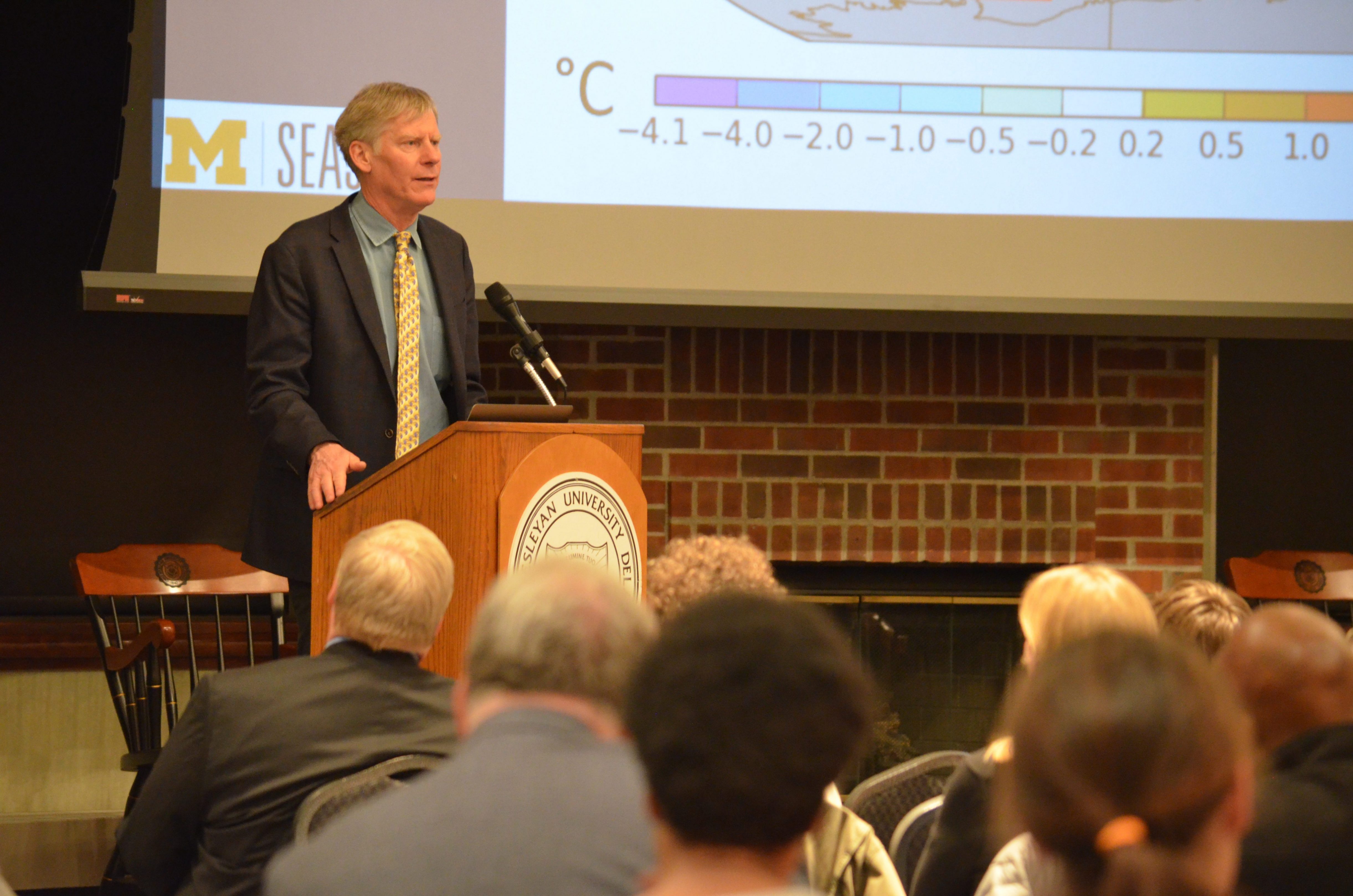By Claire Yetzer
Staff reporter
ceyetzer@owu.edu
The Ohio Wesleyan campus got a dose of climate change reality at the 30th annual John Kennedy Eddy Memorial Lecture on World Politics.
The title of the lecture was “Global Climate Change, Water Security and Ecosystem Disruption: Higher Scientific Confident Than You Might Think.”
This year’s speaker was professor Jonathan T. Overpeck, an interdisciplinary climate scientist. He has written over 210 published works on climate change and served as a Coordinating Lead Author for the Nobel prize-winning IPCC 4th Assessment in 2007.
The Eddy lecture series is hosted by the International Studies Program and the Department of Politics and Government. The series was established to honor John Kennard Eddy, a student who perished in a car accident when attending a seminar at Oberlin College.
Over 150 people attended the lecture, which was held in the Benes Rooms in the Hamilton-Williams Campus Center.
Professor Sean Kay, Professor James Franklin and Provost Charles Stinemetz gave introductions prior to Overpeck’s lecture.
“It was great to see all of the young people and especially all the great questions they had. They obviously know about this issue and are thinking about this issue and I am confident that they will be the ones that will solve this issue,” audience member Linda Diamond said.
Overpeck started the lecture by introducing it as the 21st-century challenge. He went on to describe the major problems the United States faces along with impacts around the world. Issues being faced are major droughts, sea level rise, lack of biodiversity and higher expenses for living.
After discussing the impacts that high emissions of greenhouse gases have on the environment. He impressed upon the audience the importance of starting the transition to clean energy immediately.
There are other concerns with starting the change as soon as possible, like preventing China from capturing the clean energy market. These major changes that need to occur are direct responsibilities of government involvement in climate change policies and involvement of major corporations dedicating research towards cheaper clean energy Overpeck said.
“A giant step that we need to take is electing people who believe in climate change, if we keep voting for people who push it away or don’t think of it as a major issue then we aren’t gonna get anywhere,” freshman Danielle Black said.
The lecture ended with questions from the audience. Most questions were posed by students who wanted more specific examples of solutions to the climate change problem. The last thing imparted upon the audience by Overpeck was a simple statement.
“We created the problem, solving the problem is the responsibility of the next generation or two,” Overpeck said.
